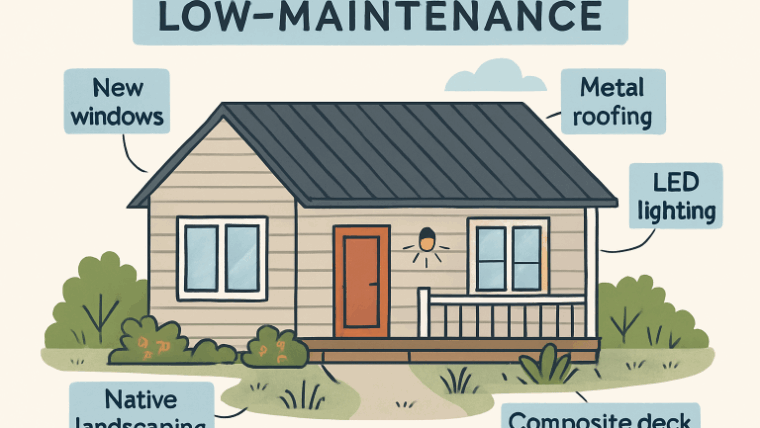Table of Contents
Introduction to the Insurance Appraisal Process
For homeowners navigating the aftermath of property loss or damage, insurance claims can quickly become complex—especially when disagreements over value arise. The insurance appraisal process provides a structured avenue for resolving these disputes, offering an impartial assessment to help both parties reach fair settlements while minimizing the stress, time, and expenses associated with litigation. A qualified CT insurance appraiser can be instrumental in bridging the gap between insurance company estimates and the policyholder’s expectations.
This process empowers the insured and insurer to independently assess and value claims, fostering transparency and reducing friction. However, the process hinges upon the policy’s appraisal clause, a frequently misunderstood element that can dramatically shape a claim’s outcome. Understanding when and how to invoke this provision can make all the difference for homeowners striving for a justified settlement.
Understanding the Appraisal Clause in Your Policy
The appraisal clause, included in most homeowners’ insurance policies, becomes crucial when disagreements on loss value cannot be resolved informally. This clause gives either the insurance company or policyholder the right to demand that an objective third party evaluates the disputed amount by triggering the appraisal process. Understanding the distinction between an insurance appraiser vs adjuster is key. While an adjuster assesses the claim and works for the insurance company, an appraiser is a neutral professional chosen to evaluate the loss independently. However, the terms and requirements of this process can differ significantly between policies—some may make appraisal mandatory in all disputes, while others leave this as an optional step for the involved parties.
Before initiating any appraisal, homeowners should thoroughly review their insurance policy’s language to grasp the triggering criteria fully, the notification procedure, and the time limits. Even nuances in policy language—such as when an appraisal can be requested or whether it’s binding—can substantially affect your legal standing and settlement results.

Steps Involved in the Appraisal Process
1. Initiating the Appraisal
The appraisal process formally begins when either the policyholder or the insurance company delivers a written demand to the other party. This notice must outline which items or damage values are in dispute—clear documentation here helps prevent scope creep and keeps the appraisal focused.
2. Appraiser Selection
Each side designates a competent and impartial appraiser to act on its behalf. The appraisers’ foremost role is objectively assessing the disputed values, ensuring neither party has an unfair advantage or undue influence over the proceedings.
3. Choosing a Umpire
The two appraisers then collaborate to select a neutral umpire. If consensus proves elusive, parties may petition the court for an appointment, ensuring no deadlock stalls the process. The umpire steps in if the two appraisers cannot agree on the damage’s value or scope.
4. Damage Evaluation
Both appraisers independently inspect the property and examine all relevant documentation—including repair invoices, contractor estimates, expert reports, and photographic evidence. They develop detailed, itemized estimates for repair or replacement of all disputed items, sometimes enlisting additional subject-matter experts for complex claims.
5. Award Finalization
If the appraisers reach an agreement, that amount becomes the binding value of the loss. Should they disagree, the umpire reviews both findings, deliberates, and sets the final compensation. Normally, the agreement of any two parties (either both appraisers or one appraiser plus the umpire) suffices to finalize and enforce the outcome, as specified in most policy terms.
Legal Considerations and Recent Developments
Legislation continues to reshape the insurance appraisal landscape in several states. Notably, recent laws in Florida have layered additional procedural hurdles for policyholders—examples include stricter notice requirements, narrower windows to request appraisal, and increased documentation standards. Such changes are part of a broader nationwide trend towards more formalized and sometimes restrictive appraisal procedures.
Tips for a Successful Appraisal
- Document Everything: Retain copies of all communications, repair invoices, estimates, photographs, and receipts relevant to your claim—every detail matters.
- Understand Your Policy: Become familiar with all clauses governing the claims and appraisal process to avoid missteps or overlooked obligations.
- Hire an Independent Appraiser: Select a professional with no direct interest in the outcome and a proven track record with similar claims.
- Be Present During the Appraisal: Attend the property inspection and be available to answer questions or expand on evidence—you can fill in information gaps that might otherwise delay or diminish your claim.
- Communicate Clearly: Maintain prompt and transparent communication with your appraiser and the insurer to avoid misunderstandings and keep the process moving efficiently.
Common Challenges and How to Overcome Them
Several stumbling blocks can slow or derail the appraisal process. Delays may occur if either party hesitates to appoint appraisers, there is disagreement over the umpire, or the documentation is incomplete. Disputes occasionally arise even after a binding decision; policyholders have recourse through legal counsel or mediation for egregious appraiser bias, non-disclosure, or alleged ethical breaches. Ensuring neutrality and competence at every step, coupled with thorough documentation and open lines of communication, is the best defense against these issues.
- Engage an attorney or public adjuster familiar with insurance disputes if challenges persist beyond routine hurdles.
- Scrutinize all parties involved for impartiality and requisite expertise, especially when appointing an umpire.
- Respond promptly to requests for supporting information and ensure no documentation is missing when the appraisal begins.
Final Thoughts
Mastering the insurance appraisal process positions homeowners to reach equitable claim settlements even amid disputes. Informed and proactive homeowners who document their losses, communicate effectively, and diligently select their appraisers and umpires dramatically improve their odds of securing fair compensation. Staying educated on legal updates and the evolving insurance environment will help ensure you are prepared for whatever your insurance claim journey may bring.


